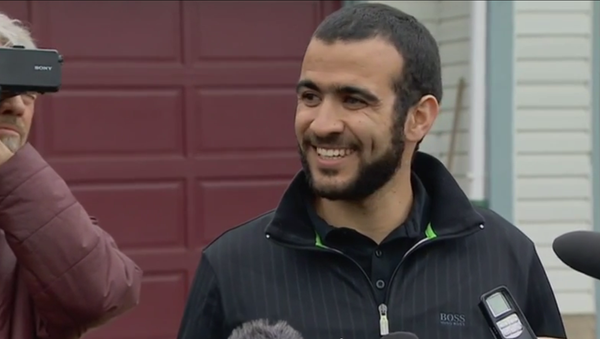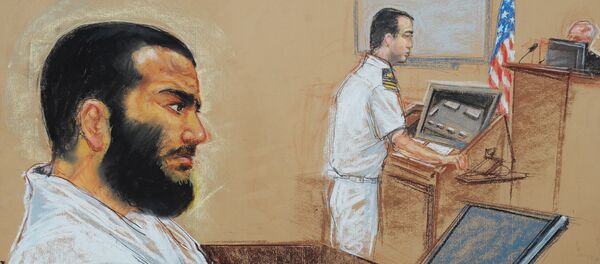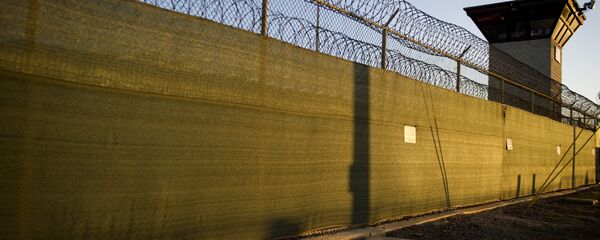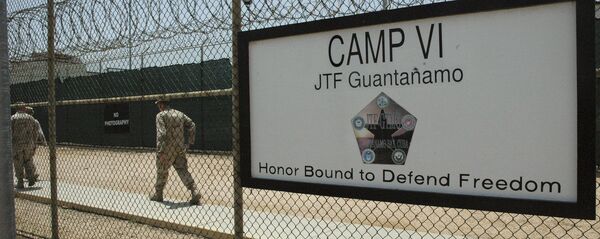Ottawa also apologized to Khadr, now 30 years old, "for any role Canadian officials may have played in relation to his ordeal abroad and any resulting harm."
"We hope that this expression, and the negotiated settlement reached with the Government, will assist him in his efforts to begin a new and hopeful chapter in his life with his fellow Canadians," said Foreign Affairs Minister Chrystia Freeland and Public Safety Minister Ralph Goodale in a joint statement.
"It is not about previous behaviour on the battlefield in Afghanistan; it is about the acts and other decisions the Canadian government took against Mr. Khadr after he was captured and detained. Those facts are not in dispute and there is no doubt about how the Supreme Court views them. The government of Canada offended the most basic standards," added Goodale during a press conference on Friday.
In 2013, Khadr filed a C$20 million ($15.5 million) lawsuit against the Canadian government for alleged conspiracy to abuse his rights alongside Americans at Guantanamo Bay. Khadr claimed that he made his guilty plea under duress because he saw it as his only escape from torture.
The Canadian Supreme Court ruled in 2010 that Khadr was interrogated under "oppressive circumstances" and that the Canadian government was complicit in these abuses during his detention.
"I have a lot of experience with pain and I have an appreciation of pain," Khadr told the Canadian Press. "With my past, I don't know who's going to be comfortable with hiring me. I just want to be the next person on the road that you don't look twice at… who doesn't have to worry about going to court. Hopefully, eventually, it will come."
Khadr's father, Ahmed, took his family with him to Afghanistan in 1996 when Omar was 10 years old. In early 2002, Khadr became affiliated with al-Qaeda's senior leader in Afghanistan, Abu Laith al-Libi. In August of the same year, then-15-year-old Khadr was involved in a firefight against a quartet of American soldiers. Sergeant Christopher Speer was injured during the skirmish and died of his wounds two weeks later.
Khadr, who was accused of throwing the hand grenade that fatally wounded Speer, was transferred to Guantanamo in October 2002 and tried as an enemy combatant and an adult by American authorities. As Guantanamo's youngest prisoner and a Canadian citizen, his case attracted considerable attention from both the media and the Canadian government.
In 2010, after eight years of confinement, the now-adult Khadr pled guilty to war crimes and was sentenced to an additional eight years imprisonment. He was transferred to Canada two years into his sentence and served an additional two and a half years in a Canadian maximum security prison. He was released on bail in May 2015.
The case has long divided the Canadian people, typically down party lines. Conservatives have described Khadr as a radicalized fighter while liberals have called him a child soldier and victim of abuse. A petition by right-leaning advocacy group The Canadian Taxpayers Federation collected a petition with over 50,000 signatures opposing any compensation for Khadr.
Andrew Scheer, leader of the Conservative opposition in Parliament, called the decision "disgusting" and a "slap in the face."
Also outraged are Tabitha Speer, the widow of Sergeant Speer, and fellow soldier Layne Morris, who was blinded in one eye during the same gunfight that killed Speer. The pair of them won a $134.1 million settlement against Khadr in a Utah court in 2015. Speer and Morris also filed an injunction to block Khadr from receiving any money in Ontario Supreme Court, but legal experts find both measures unlikely to succeed.
"The injunction is moot. It is absolutely moot," University of Ottawa law professor Amir Attaran told The Globe. "Plus, if they are smart, that money is not sitting in Omar Khadr's name, it is sitting in a trust fund or it is sitting in a corporation or some other structure, and good luck in enforcing against that."






